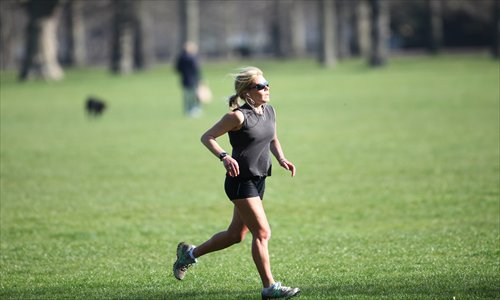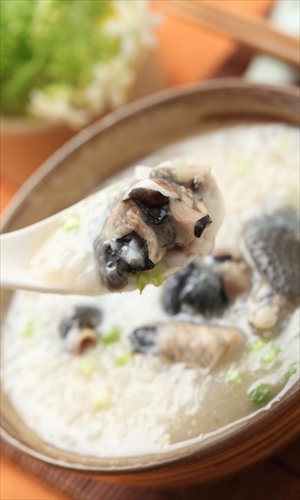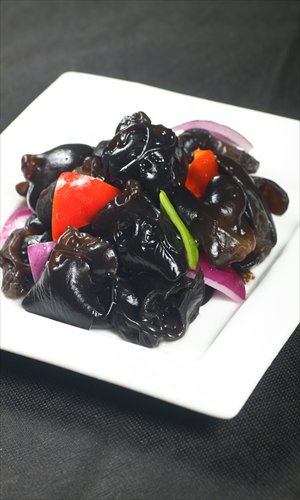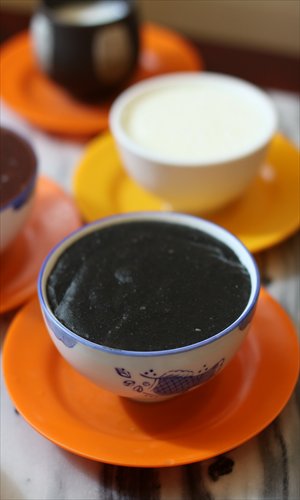A sporting chance
Editor's note
The ancient Chinese created an agricultural solar system - still in use today - that is based upon their observation of crops, climate, astrology, and the study of animal and plant life cycles. The system guided farmers as to when to sow seeds and when to harvest them, and this system has now been in place for more than 2,000 years.
Today, with advances in science and technology, agriculture depends less on this ancient wisdom. But this seasonal calendar still operates as a reference guide for gourmands to seek out the best times for seasonal delicacies and for health experts to plan nutritious diets.
In a single year, the system features 24 "solar terms," each lasting one day and occurring every two weeks. Each has its own name and characteristics. The Global Times is presenting a weekly series examining which foods and delicacies are best enjoyed during these periods, as well as tips on preserving general health.

According to the Chinese agricultural solar system, lidong, which means "start of winter," fell on November 7 this year. As the temperatures drop, it's important for citizens to know how to keep healthy and warm during the long, chilly winter months.
"According to Traditional Chinese Medicine (TCM), lidong is the time to start going to bed earlier and getting up later in order to ensure adequate sleep. This will also benefit the yang elements in the human body," said Cai Jun, chief physician of the nutrition department at Longhua Hospital affiliated with Shanghai University of TCM. "And the top priority is to take good care of your kidneys."

Acupuncture points
Cai said that there are some simple steps to take to keep the kidneys healthy. According to TCM, a person's ears have an important connection to the kidneys, and there are a number of acupuncture points in the ear that can benefit the kidneys. So it is helpful to rub or knead the ears from time to time.
Treatment for the feet is also highly recommended, such as regularly soaking the feet in hot water. Hot water helps to stimulate the acupuncture points on the feet and to strengthen the abdominal organs, especially the kidneys. Besides, a daily half-hour walk is also helpful, and will have similar effects to rubbing or kneading the feet to stimulate the blood circulation.
"The ultimate aim of caring for the kidney is to increase the amount of yangqi (energy) in the organs because people often suffer a lack of this in the winter," added Cai. "And it's a very good idea to expose your back to sunlight to keep it warm. This is especially important for old people, because the back is said to be able to absorb yangqi," said Cai.
It's common for many older people to be early risers. However, when it comes to lidong, Cai suggests it is best not to get up until after sunrise, "Lidong heralds very chilly mornings. So it's important to avoid too much activity either in the early morning or late at night," Cai added.
There is a Chinese saying, shengming zaiyu yundong, which means "life lies in movement," and this is applicable to any season. For lidong, gentle sports like walking, jogging and shadowboxing are recommended over more physical pursuits. The aim of these activities is to activate the joints, circulate the qi, and strengthen the body's immunity. Be aware that it is important to exercise regularly. "The best time to practice sports is at about four or five o'clock in the afternoon," said Cai.

What to eat
Many people believe that in winter high-calorie foods such as beef, mutton and dog meat should be consumed, but for lidong it is more advisable to eat slightly lighter fare such as chicken, duck and fish.
According to Cai, black-colored foods are highly recommended during lidong because they are very beneficial for the kidneys. He suggests black fungus, black sesame seeds, and Taihe chicken. Also high-fiber foods such as jujube and white gourd are good for improving the health. But cut down on your intake of "cold" fruits such as pomelo and spicy foods such as garlic, he recommends. To avoid winter dryness, make sure you consume enough water and watery fruits during lidong.
